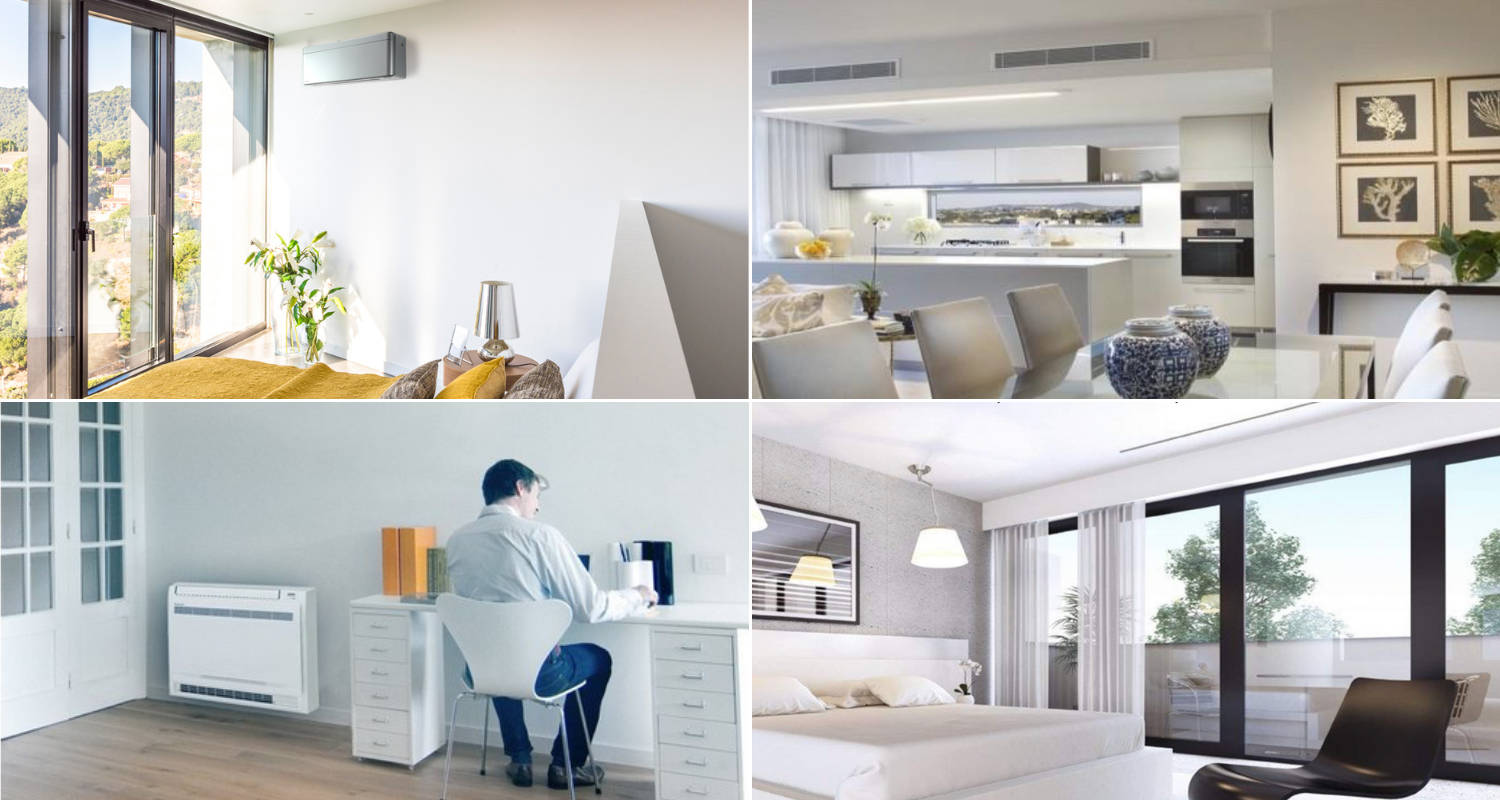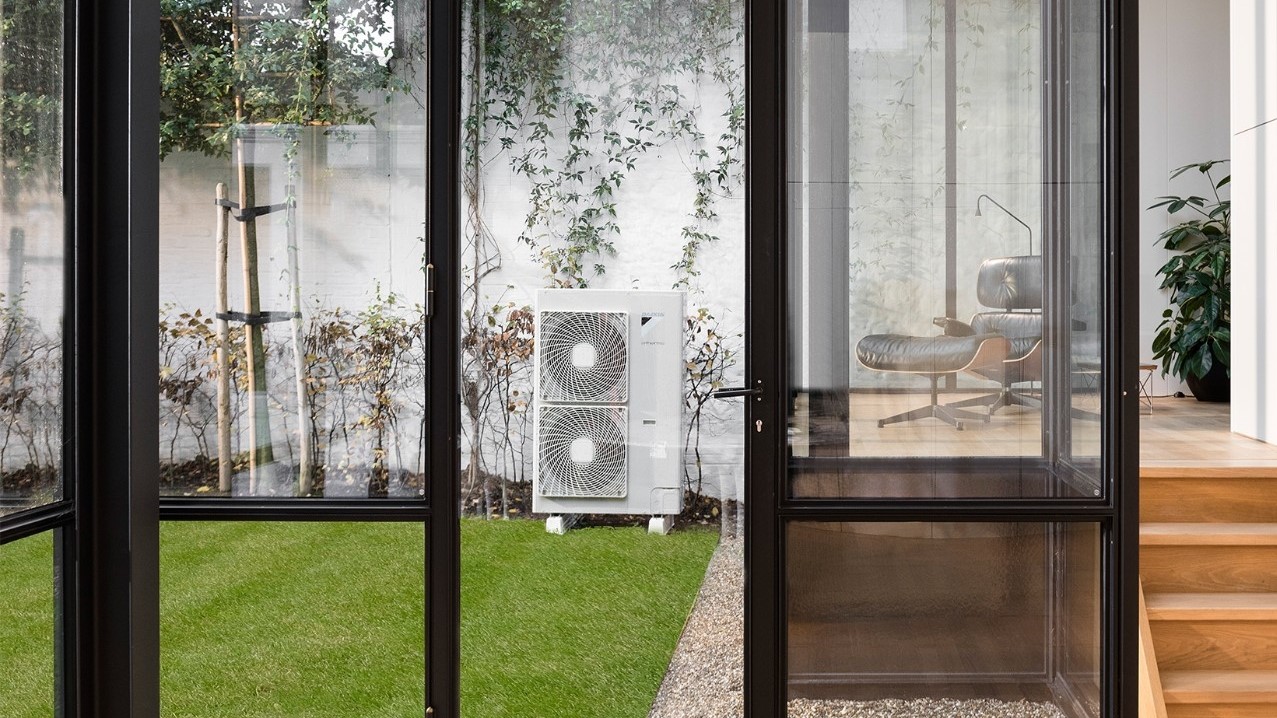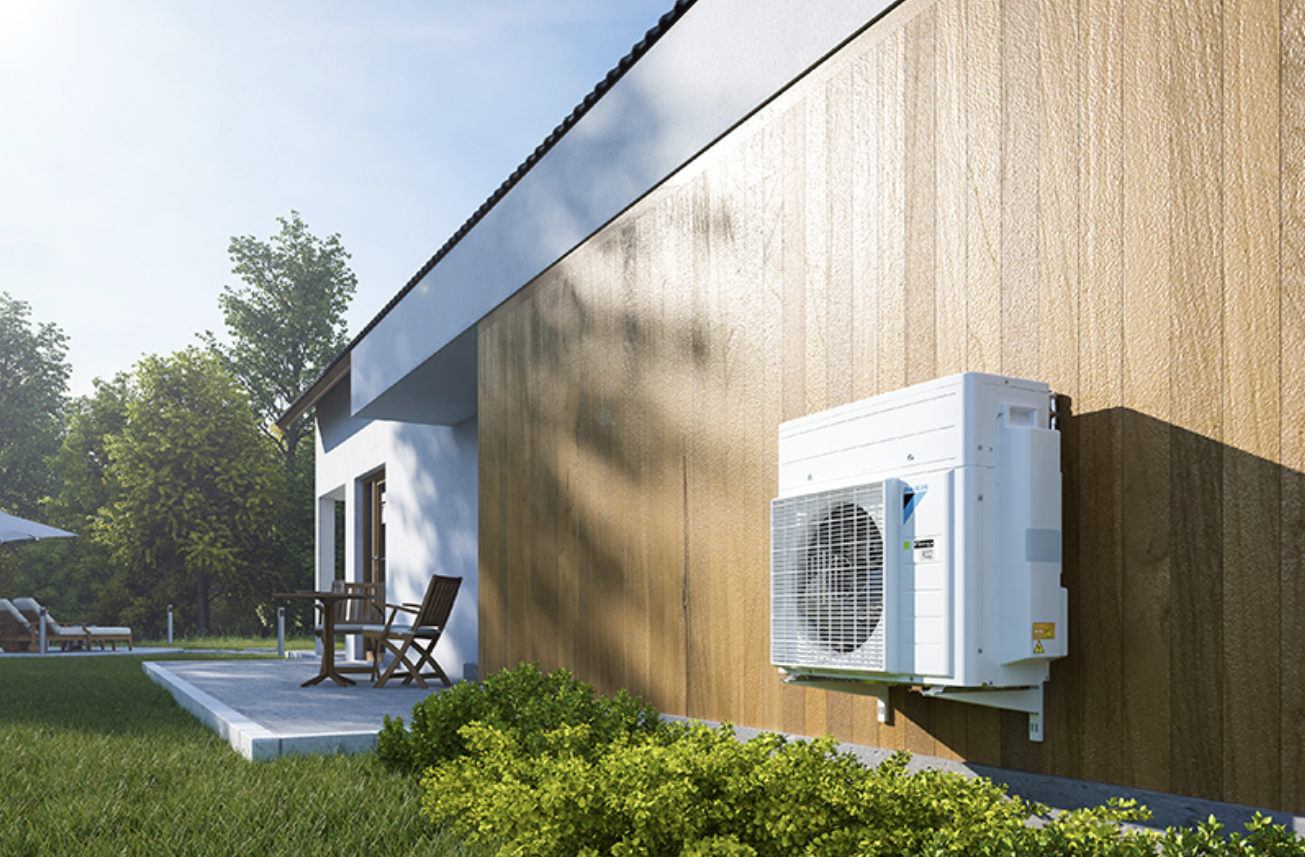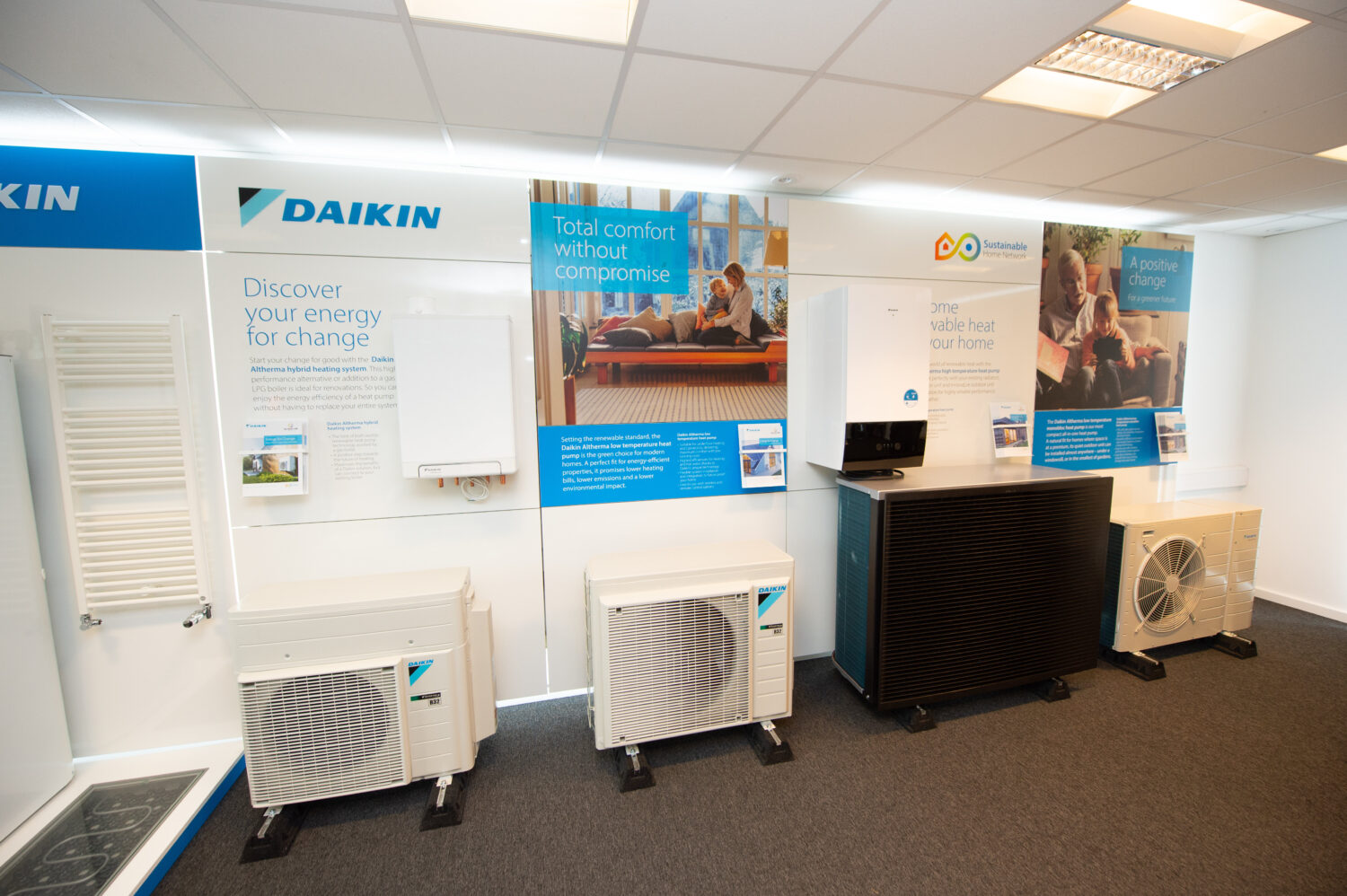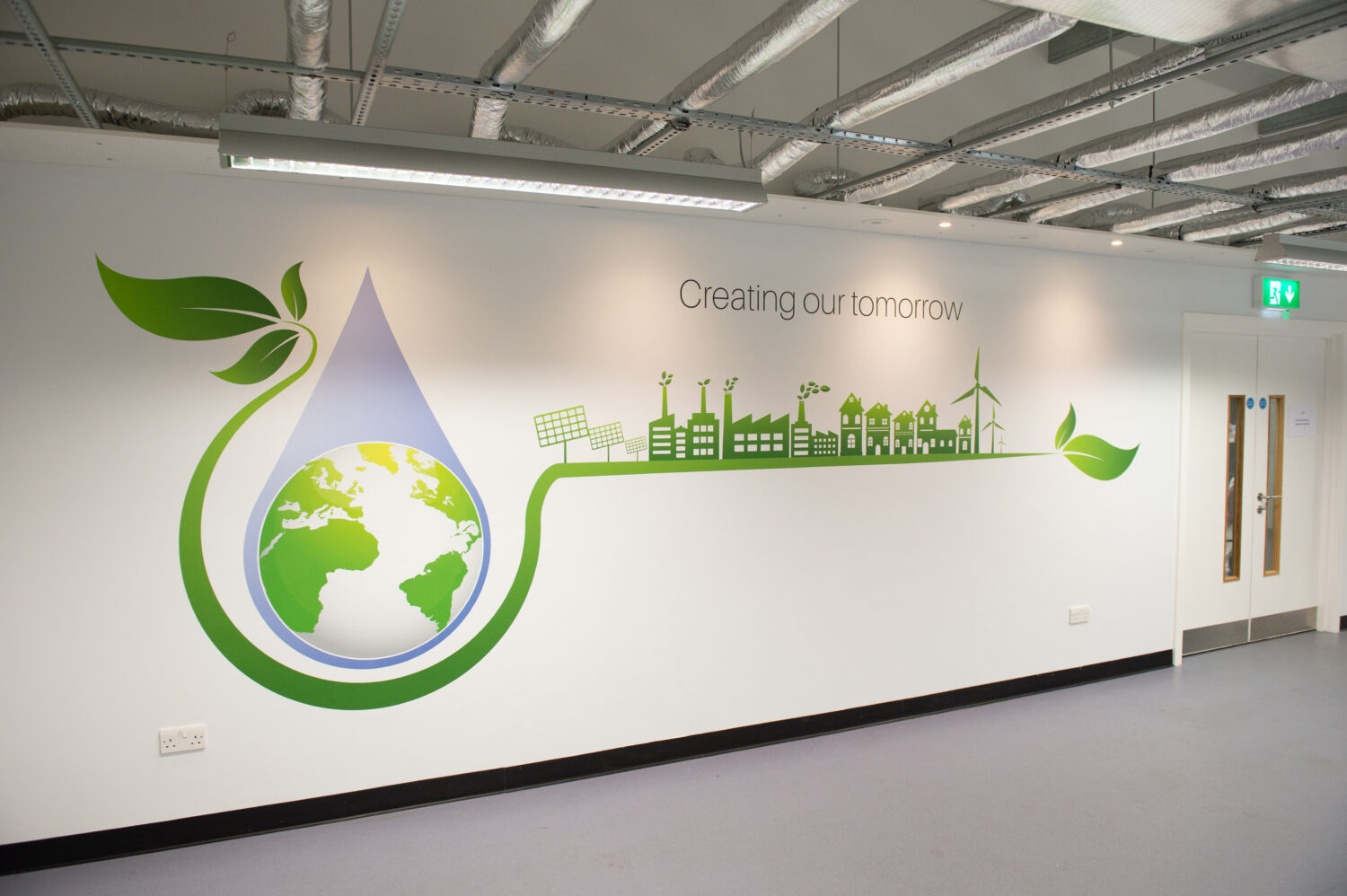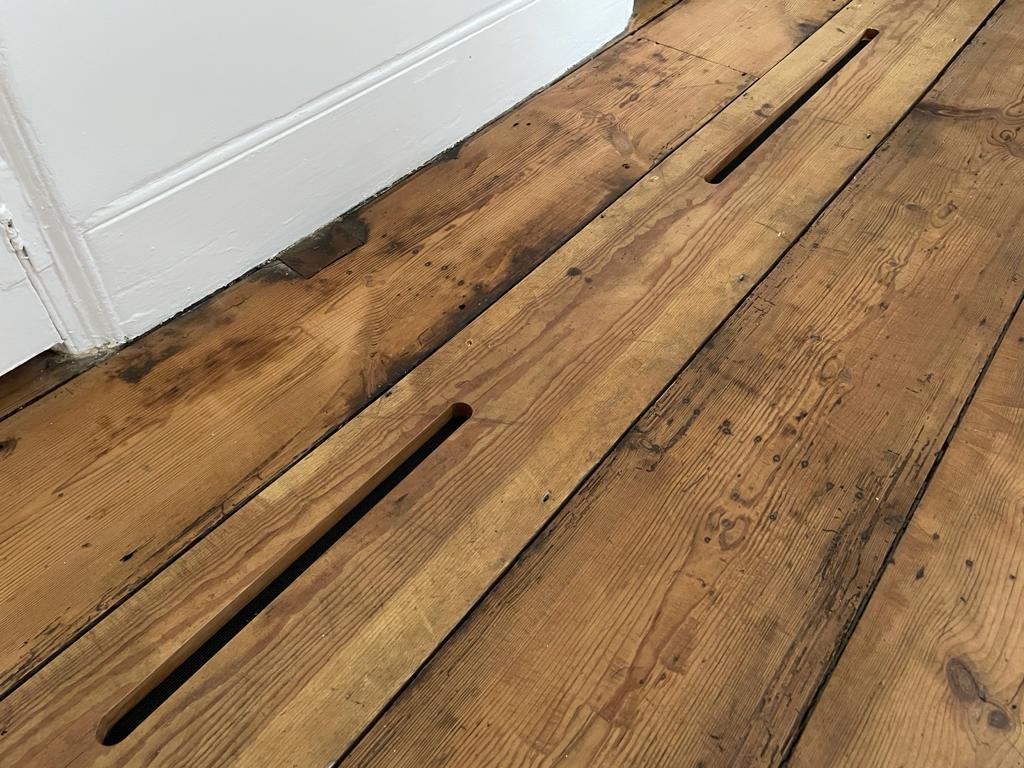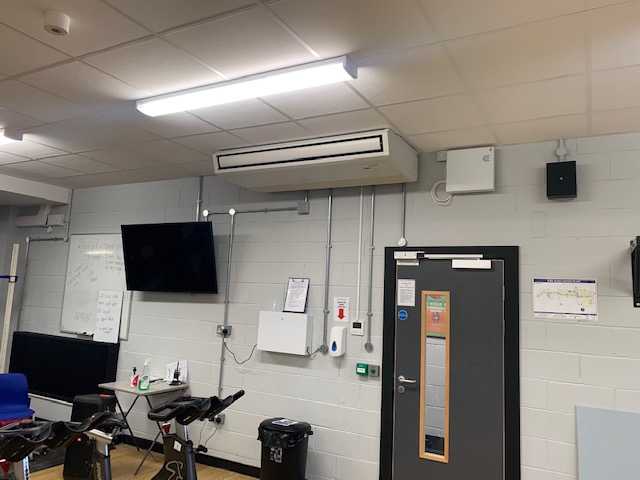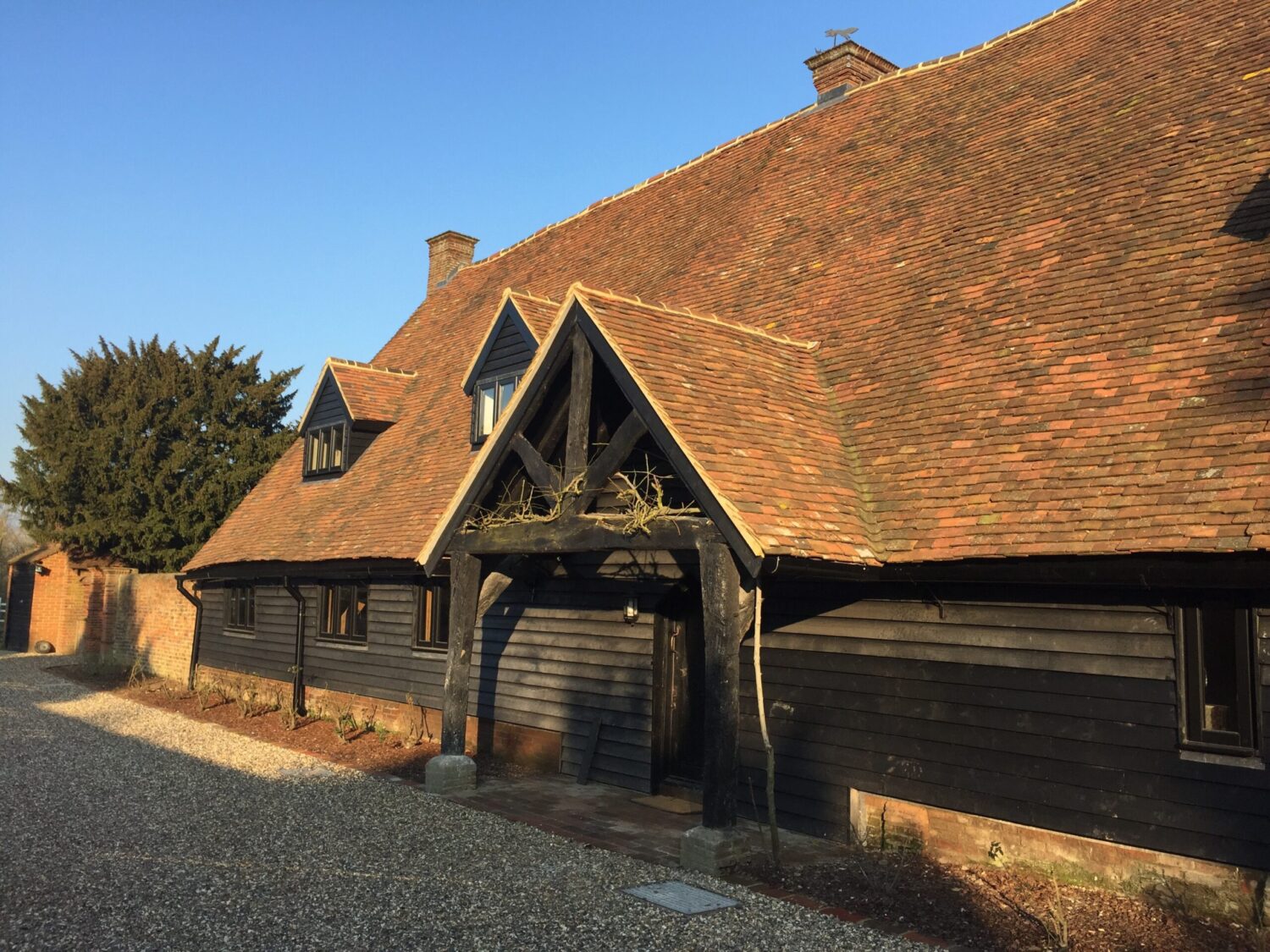Which Air Conditioning system is right for my home?
During our current heatwave it is clear that our summer temperatures are soaring higher than ever so it is imperative we have ways to keep our homes cool with the latest air conditioning solutions.
Whether you are looking at cooling a single room or a whole house, or somewhere in between, we can design and find the right solution for you. From hi-velocity small duct systems through to wall mounted, concealed ducted, cassettes, floor standing or ceiling suspended units, there are many options to choose from depending on your budget and requirements.
In this blog, we detail the 6 different air conditioning systems to help you figure out which option is right for you.
[Book your free air conditioning consultation now]
Invisible.AC
Invisible.AC is a discreet and quiet hi-velocity ducted system which offers a versatile and efficient air conditioning, heating, ventilation, and UV air purification solution.
The highly efficient air-handling units distribute cooled or warmed air through flexible space-saving mini ducts, injecting the air at hi-velocity through discreet linear slots or round ceiling or floor outlets, making this air conditioning unit almost invisible (hence the name).
The aspiration air jets eliminate drafts and ensure a temperature differential no greater than 1 degree Celsius throughout a room (compared to a variation of up to 6 degrees Celsius with other air conditioning systems).
The system also removes 30% more relative humidity. The reduced humidity means that the temperature can be set higher, saving energy, and running costs when cooling.
System zoning provides flexibility and control to set precise temperatures for different conditions in different areas.
The Invisible.AC system is one of the quietest systems available due to the use of patented acoustic technology throughout, ensuring that the system operates at low noise levels with minimum vibration.
Wall mounted units
Wall mounted units are the most popular choice mainly because they are the cheapest to install but also because they can be fitted in rooms without the need for re-decoration. The units are usually long and thin and placed at a high level on the wall. We would recommend the Daikin convectors which can be used on a reversible air to water heat pump.
Concealed Ducted systems
If you want better efficiency, or you simply want a portion of your home to be cooled, then ducted units are a great option. They are usually one of the more expensive options, but they are certainly aesthetically pleasing and are proving hugely popular in new-build properties.
The ductwork and units can be hidden within the ceiling, wall, cupboards or loft space, so all that is visible is a stylish small supply and return grille.
There are various grille designs available to complement any interior design. Our surveyors will talk you through various solutions, to ensure you achieve the design aesthetic you desire.
Ceiling cassettes
Ceiling cassettes are engineered to provide optimal air flow in 4 directions in all types of small and large spaces, while freeing up wall and floor space.
Ceiling cassette air conditioning are widely popular in the commercial setting. From office to retail stores and warehouses, they are incredibly useful for both the comfort of the staff and customers as well maintaining optimum temperatures.
Floor standing units
Floor standing units are a great solution for buildings that do not have a lot of available wall space or those that have fragile walls/glass walls. They can also be used in premises where the ceiling space is not suitable, or the unit needs to be concealed at a low level and out of line of sight.
Floor mounted units can look very discreet minimising the impact on the room’s aesthetics. They typically look similar in appearance and size to a radiator.
Ceiling suspended units
Ceiling suspended units are fitted to the ceiling to provide fast and effective cooling in large spaces and feature swing louvres which effectively distribute cool air around a large space.
Ceiling suspended units are the ideal solution for rooms without false ceilings and are perfect for uniform air distribution in large spaces because of their long air flow. Although less discreet than ceiling cassettes, modern units are slim and lightweight, unoffensive in appearance and extremely quiet when in operation.
Book a free consultation with our Sales Engineer
There are many options to choose from and it can be quite overwhelming to decide which one is the best fit for your home. As an approved partner of all the major brands, we are able to design, install and maintain all types of systems within residential and commercial environments. One of our Sales Engineers can help you choose which system best fits your needs and budget.
Email [email protected] or call 01708 528240.

